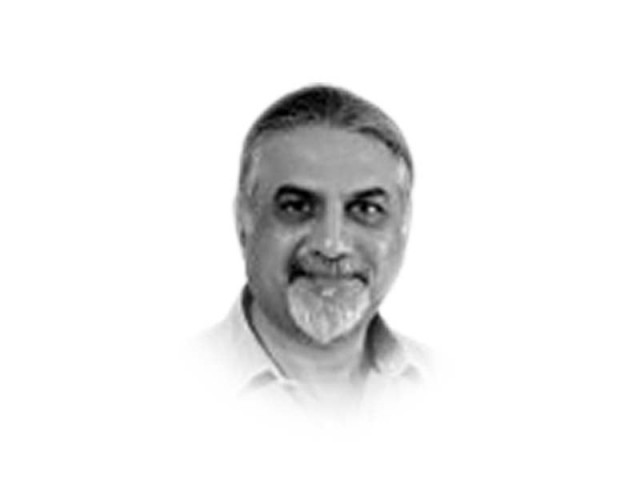Kashmir looking up to Trump and UN General Assembly
President Trump has his work cut out

The writer is a member faculty of contemporary studies at NDU Islamabad and can be reached at muhammadaliehsan1@hotmail.com
As our Prime Minister heads to Washington to address the UN General Assembly, Pakistan’s strategy on Kashmir is simple and clear. The Prime Minister will shake the world’s conscience through his speech and emphasise to the world leaders to stop being uncertain on their options on Kashmir. It’s time they got out of the mode of “strategic patience” and unambiguously demonstrated to India what it needs to do in Kashmir and when.
There are no good or bad strategies only good or bad influences and Prime Minister Modi’s promotion of the extreme ideology of Hindutva has unfolded a Kashmir strategy that only seeks and bleeds trouble. No matter how India promotes its drastic actions in Kashmir to the world (Prime Minister Modi will be addressing the UN General Assembly prior to Prime Minister Imran Khan’s address), it will be Prime Minister Khan’s words that the world will be more intent on hearing because unlike Modi, Khan will speak on behalf of the Kashmiri’s.
The life of the current Indian Kashmir strategy is likely to be short. It is even being predicted that Prime Minister Modi may lift the curfew before he addresses the UN General Assembly and even may announce an economic reform package for the locked-down occupied territory. Whatever may be the timings of lifting the curfew, the locking down and bringing life to a standstill in occupied Kashmir cannot go on forever.
Pakistan wants stability both on its eastern and western borders. It does not want to export any proxies and the world must notice the costs Pakistan is paying in building a fencing system on its western front with Afghanistan. Just a couple of days back a Pakistani major and sepoy were martyred while supervising the fencing work on the border. Pakistan doesn’t want Afghanistan to become a base of attack on the outside world and it also doesn’t want Afghanistan to become a base to spread destabilisation in the neighbouring countries. The world must also take notice of the continued Indian attempts to undo and prevent Pakistan’s rise. It must not take lightly the hollow threats of the Indian Military Chief as he hurled “his forces are ready to take back Azad and Jammu Kashmir and make it part of India” at Pakistan.
The UN General Assembly meets at a time when the security environment in the world is high on intimidations, bullying and threats and low on expectations, collaborations, and cooperation. The Indo-Pak standoff on Kashmir is clearly signaling the risks of a nuclear conflict. Saudi oil facilities have been hit with the drone attacks and nobody knows when and where another such attack may materialise and how the “Peninsula Shield Force”, the military arm of the GCC, or the US may react. The most disturbing contradiction is in the foreign policy of the existing superpower, the US, and the rising power, China. While US Secretary of State Mike Pompeo termed the drone attacks on the Saudi oil infrastructure as “an act of war” and suggested Iran is the culprit, China announced an investment of $280 billion in the Iranian oil gas and petrochemical sectors on the occasion of its Foreign Minister’s visit to Iran a few days back. There are clear indications that rival blocks of aligned states are fast taking shape and preparing for an armed struggle to hold the balance of power in their respective regions.
As the world leaders gather at the UN General Assembly, President Trump must make a clear choice. He can either continue his election promises of “dealing with his own problems and letting others deal with theirs the best they can” or utilise the power that makes America great to resolve outstanding conflicts like Kashmir. The flow of oil from the Gulf region must also not stop as this will only damage the global economy and would surely threaten US economic prosperity as well.
President Trump has his work cut out. He can go down in history as the president that engaged in peace talks and crisis diplomacy simultaneously on three fronts — Kashmir, Iran, and Afghanistan, or he may also end up getting ticked as another US wartime president who presided over wars that could have easily been prevented and which America should never have fought.
The time is ticking and unfortunately for the US President and the world, this time around a conflict also showcases a nuclear ticking clock.
Published in The Express Tribune, September 22nd, 2019.
Like Opinion & Editorial on Facebook, follow @ETOpEd on Twitter to receive all updates on all our daily pieces.















COMMENTS
Comments are moderated and generally will be posted if they are on-topic and not abusive.
For more information, please see our Comments FAQ